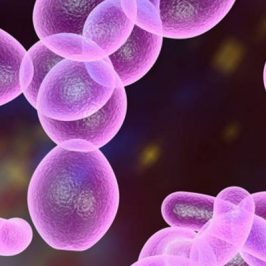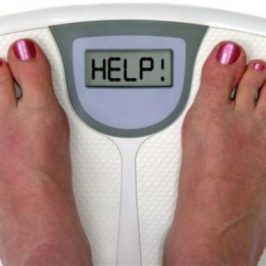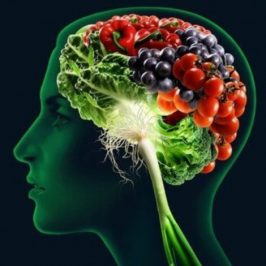How fear can affect your health and what we can do about it
We all know stress is bad for us. It can of course have a negative effect on us emotionally especially if the stress continues for a prolonged period of time. What some people don’t know is that it also can seriously directly affect our physical health, causing weight gain and increasing our risk of diabetes and heart attacks.
Our nervous system controls our body’s response to stress. It is made up of our brain, spinal cord, and nerves connecting to all our organs and muscles. The nervous system has two main components that control our body. These are the central nervous system and the autonomic nervous system. The central nervous system is under our voluntary control and allows us to control our muscles for activities such as walking. The autonomic nervous system is controlled by the subconscious mind and is responsible for things we have no direct control over such as digestion, cell repair and making our heart continue to beat.
The autonomic nervous system is the one most affected by stress and is designed to help you deal with stress effectively. The autonomic nervous system has two opposing ways to respond. It can respond via the sympathetic nervous system which is the fight, flight or freeze response triggered by stress and the need for survival or it can activate the opposite path called the parasympathetic nervous system also known as the “rest and digest” arm which responds when the body is calm to control the digestion of food and trigger body healing and repair.
In cave man times our stresses were mostly physical threats such as when we were being chased by a lion. Evolution is very powerful and has adapted our body via our nervous system to activate all its survival skills very quickly. The stress triggers the sympathetic nervous system which controls blood flow and redirects blood away from nonessential organs like the digestive organs and skin and pumps it to the brain and the skeletal muscles so that you can think clearly and either fight or run away from the stressful event. When blood flow is reduced to the internal organs it reduces the efficiency of essential processes such as digestion and immune function and they become less efficient. Now this is fine if the stress is short term, when the stress is over then the body can reverse the process and go back to digesting food properly and repair and detoxify the body. It’s when the stress goes on and on for a long period of time that these functions rarely return to full capacity that the health of our body is negatively impacted. The nervous system will respond in the same way whether the stress event or threat is physical or emotional. Most of our long term stressors in our Western world are now chronic emotional stress such as financial or relationship problems. Although these don’t immediately threaten our life in the short term they still trigger the same primitive stress responses for survival.
An important aspect regarding stress is that all that stress energy has to come from somewhere and the body wants lots of quick energy FAST. The only two fuels for cell energy are glucose (sugar) and fat. Protein needs to be converted to amino acids and then to glucose before it can be used as an energy source. In a stressed state the quickest way to get energy is via burning sugar and that is what the body does. Quick release glucose is stored in our muscles and liver as glycogen and this is released when the stress hormones cortisol and adrenaline are produced by stress. We will only go back to burning fat when we feels safe again then the stress triggers calm down and our parasympathetic nervous system is activated.
Long term stress and its resulting rise in available blood sugar has many negative impacts on our health. Not only does it reduce our body’s ability to burn fat resulting in weight gain and cellulite but it dramatically increases our risk of developing type 2 diabetes. The high blood sugar level damages the internal walls of our blood vessels, can cause plaque build up and increases our risk of heart attacks and strokes.
It is crucial to bring in stress relieving activities into our busy Western lives. Some of the most effective are exercises that integrate physical activity with control of the breath such as tai chi and restorative yoga. Other things to consider are reducing caffeine intake as this also triggers stress hormone production and getting to bed early as sleep before 2 am is much more efficient than after this time due to the circadian rhythm of naturally increasing cortisol levels after this time of the night.
Another very important aspect about managing stress is in harnessing the very powerful interaction between our gut and our mind. In the gut we produce 75% of our happy brain chemical serotonin. Making our gut more efficient can help to increase these levels of the happy brain chemical and we all cope better with stress when we are happy and seeing things in a more tolerant positive light. Through years of performing complete digestive stool analyses on patients which is a test were labs are sent a sample of the patients bowel motion (and yes the scientists are paid well to do this!) they report on all the organisms found in the bowel both good and bad. There is a consistent pattern of people feeling less tolerant to stress if they have an imbalance of too many bad organisms and not enough of the healthy beneficial variety. It is a vicious cycle where stress causes poor gut health but with this the gut produces less serotonin and then you feel more stressed.
I have found that with a program of reducing the numbers of bad organisms, enhancing digestion and replacing healthy organisms in the gut coupled with simple stress management lifestyle changes there is often a dramatic improvement in mood, happiness levels and hence the stress cascade is better managed. This results in improved blood sugar levels, easier weight management and overall greater happiness in life. These benefits can be found through programs like fermented food detoxes, specific probiotic strain replacement and adding fermented foods to your diet such as fermented papaya and fermented turmeric.
In today’s world stress is inevitable and in my view without any stress at all life would be fairly bland and lacking any challenges. Uncontrolled stress does increase the risk of many lifestyle diseases such as diabetes, heart attacks, strokes and obesity. Management is about taking control of the things we can change such as our food, sleep and lifestyle choices and importantly improving our gut health makes all of this so much easier not only in getting quicker physical results but also improved mental well being and a sense of contentment within the chaos.










